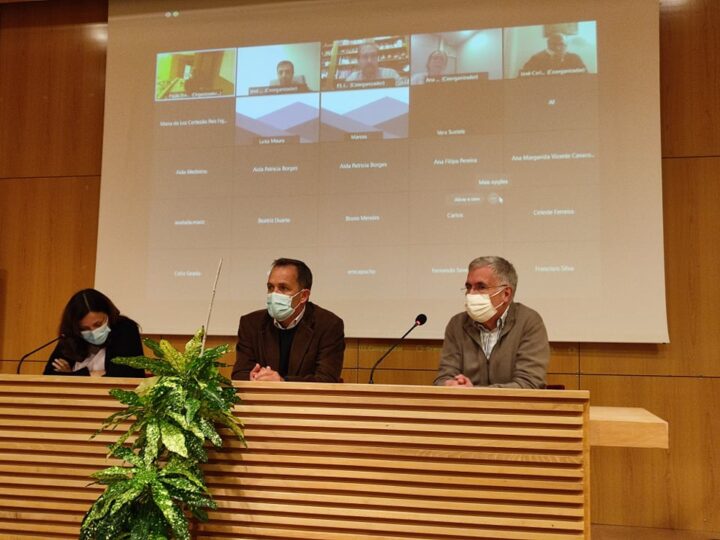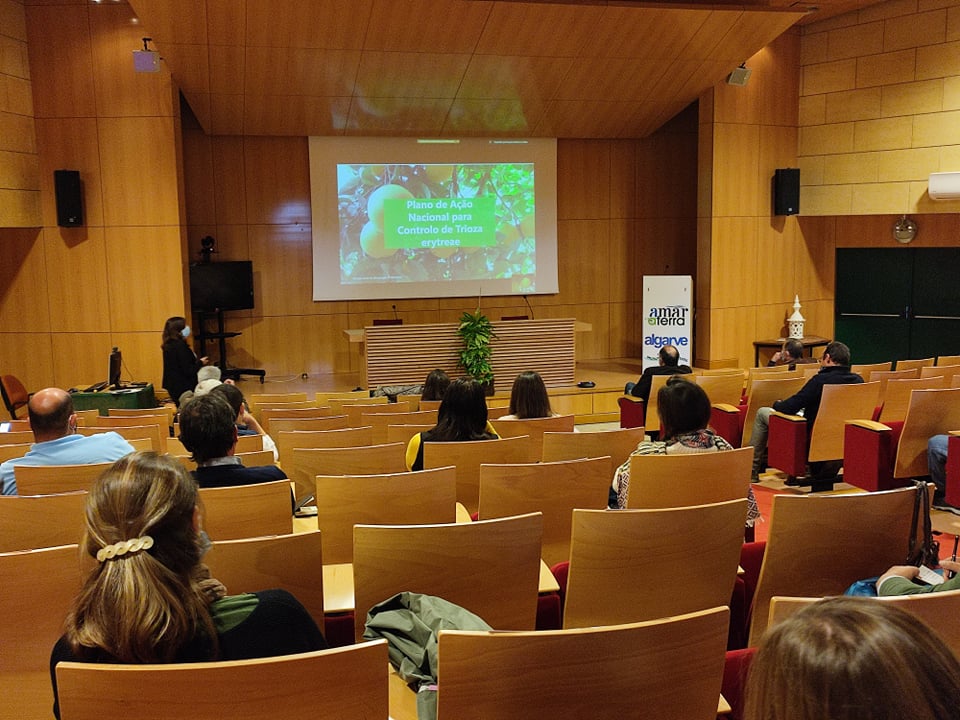The Regional Directorate of Agriculture and Fisheries (DRAP) of the Algarve organized, in its auditorium, the seminar “Trioza erytreae”, last Monday, December 6th, with the objective of “disseminating information on the evolution of the situation, national strategy and biological fight related to this important pest that affects the citrus culture”.
This seminar, organized in conjunction with the General Directorate of Food and Veterinary Medicine (DGAV), was attended by around a hundred participants from across the country, either in person or by video-conference.
The session was started by Pedro Valadas Monteiro and Susana Pombo, directors of DRAP Algarve and DGAV, respectively, who «reinforced the importance of sharing information and networking as a way to improve the capacity for action and prevention against threats phytosanitary, whose severity and impact is enhanced by the growing mobility of people and goods, as well as climate change», explains DRAP Algarve.
Several conclusions were drawn from the session, the main ones being that «the plague Trioza erytreae, commonly known as Psila Africana dos citrus fruits, it was marked for the first time in the Iberian Peninsula, in Galicia in 2014». It expanded to the south, throughout the coastal area of mainland Portugal, having been marked in September 2021 in the Algarve region, in the municipalities of Aljezur and Vila do Bispo. In the north, it is marked in the autonomous regions of Spain from the northern coast of the Peninsula to very close to France.
This is considered “a quarantine pest in the territory of the European Union, forcing the application of phytosanitary measures necessary for its eradication and to avoid its dispersion”, emphasizes DRAP Algarve.
The pest's main hosts are «plant species of the Rutaceous family, which include citrus fruit and some ornamental species of poor implantation in the Algarve region. of citrus fruits'. It is in the culture of lemon trees «that it finds more favorable conditions to settle down, due to the fact that this species presents several annual breaks».

"This pest by itself is not considered problematic, since it is relatively easy to fight, easily combining in the fight against other enemies of citrus culture, such as the case of aphids and citrus mining."
The biggest problem is that the Trioza erytreae «can transmit the disease called Huanglongbing (HLB or Citrus greening) caused by the bacteria Candidatus Liberibacter, considered the most serious disease of citrus fruits in the world, which could seriously compromise the citrus production in Europe. Although no case of this disease has ever been detected in the European Union, as the vector insect exists, the probability of its dispersion is higher”, highlights DRAP Algarve.
To combat it, a biological control plan has been applied since 2019, in conjunction with the Spanish Agricultural Services, which consists of carrying out systematic releases of parasitoid insects of the species. tamarixia dryi. This auxiliary "shows a high specificity for this pest and has proved to be extremely effective in its control, revealing very high rates of parasitism".
In the Algarve, soon after the pest was detected, it was immediately articulated with the national phytosanitary authority, the DGAV, enabling them to take place. several releases of this parasitoid on citrus plants in the municipalities affected by this pest. The scientific community is unanimous in considering that this parasitoid is "an asset in the fight against this pest".
It was also concluded in this session that it is important to "maintain and strengthen collaboration between the main players in the sector, in order to join efforts to achieve success in the application of the phytosanitary measures necessary for the eradication and avoid the spread of this pest", stresses the DRAP Algarve.
Several national speakers participated in the session, including Paula Cruz Garcia, from DGAV, José Carlos Franco, from the Instituto Superior de Agronomia, José Alberto Pereira, from the Polytechnic Institute of Bragança, Ana Aguiar from the Faculty of Science of Porto and Amílcar Duarte, from the University of the Algarve.
It also had the participation of José Maria Cobos, from the General Directorate of Sanidad de la Producción Agraria, Ministry of Agriculture, Fisheries and Food of Spain.
The presentations of all speakers will be made available shortly to the general public, on the website of DRAP Algarve and DGAV, being able to attend soon the event recording.



















Comments